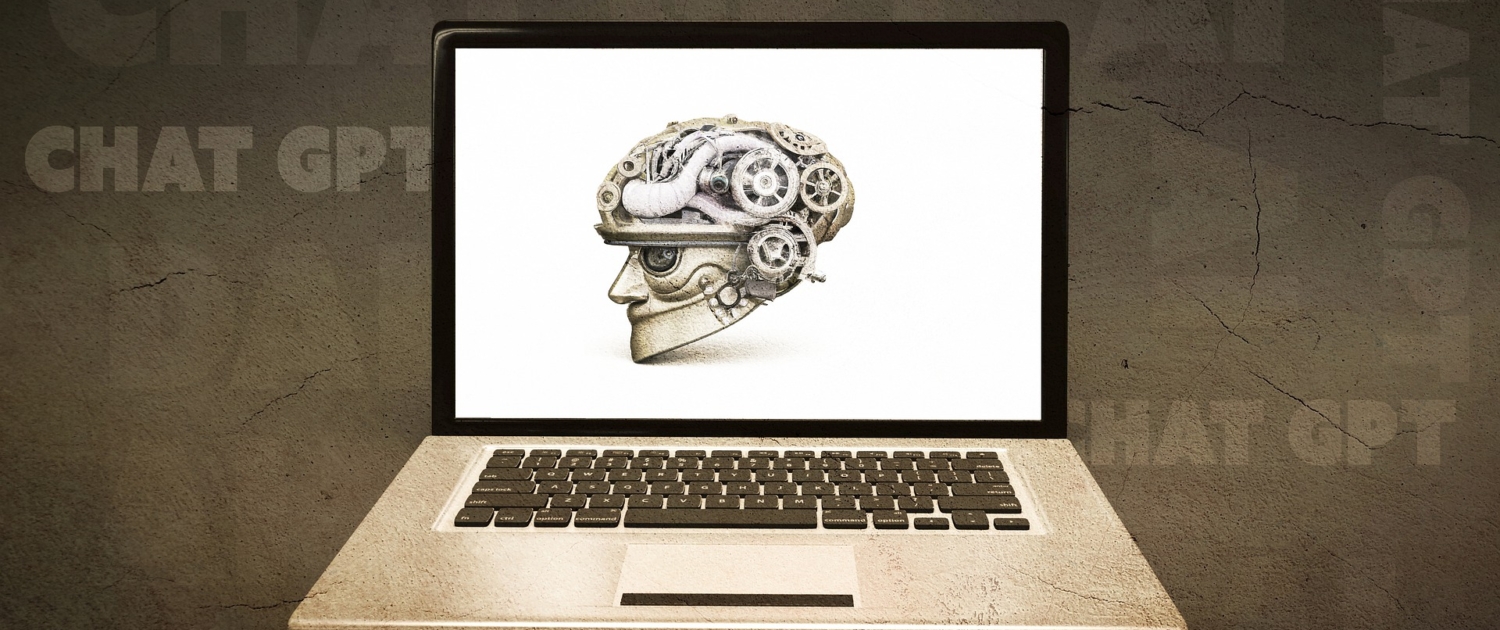- Home
- >
- DEVELOP ITS PEDAGOGICAL PRACTICES
- >
- L&T NEWS - Research Sharing of practices
- >
- GPT Chat: the emergence of AI available to all in education
Chat GPT: What is it?
A lot of ink has been spilled over the last few weeks and months about ChatGPT (Generative Pre-trained Transformer), with more than a million users at the beginning of December, this chatbot continues to make the headlines. Do you know what ChatGPT is ?

Few things to put it in context:
Open AI has developed ChatGPT, a conversational agent, which can generate text content on any topic. This AI can write an answer to almost any question and generate a tailor-made text. It can also rephrase an answer to provide a new text.
Here are some features:
- To provide a suitable answer, the question must be clear and precise;
- It can answer both simple and complex questions;
- It is based on machine learning;
- It allows the user to make corrections to the questions asked.
ChatGPT and education
Without surprise, many educators predicted that that students will inevitably use it to cheat- and they were not disappointed 50% of students at the University of Lyon used ChatGPT to compose during the January 2023 exams.
In this context, how do we ensure that this doesn’t happen to us?
ChatGPT is not at full maturity, here are some of the things we have observed about the responses generated:
- The tool generates answers that may contain similarities in both the information and the structure of the answers;
- It provides responses that are not always complete or creative;
- The answers are not always coherent and sometimes lack clear meaning;
- It is not able to think or argue in an elaborate way;
- It is not capable of integrating in his/her answers human qualities that can weigh up our judgements such as intuition, morality, sensitivity;
- It does not cite any sources and does not produce a bibliography ;
- It is not capable of generating images, diagrams or mind maps;
- Its database is stored in a data centre. The latest data is from 2021. It is therefore not up to date on current events.
To obtain a qualitative result, it is necessary to carry out a re-reading to make sense of the elements and fill in the gaps.
Are there any tools to detect the use of ChatGPT?
ChatGPT is not detectable by traditional anti-plagiarism tools, as it generates original content from existing data.
This will require us to rethink some of our evaluation methods. For example, we can think of several ideas:
- Rather than focusing the assessment on knowledge, it seems interesting to assess the process of choice or reasoning. This allows for the evaluation of metacognitive processes and the overall understanding of the subject;
- One can imagine an exercise in video or podcast format in which students will have to carry out a debate. It is important to ensure that the assessment is not based on knowledge but on skills. Indeed, students can generate their own ideas via ChatGPT, although their response may not be natural;
- Rather than asking for written texts, why not ask for a minpmad or a summary diagram. However, if you want to test the writing skills of your student (language test for example) you may want to use old-fashioned table-top assignments, for example.
A little tip: a code has been developed to counter ChatGPT and detect plagiarism:
Quelles sont les limites éthiques et philosophiques de ce type d’IA ?
- In such a context, what is the place of learning? Students would quickly question the pupose of attending class when ChatGPT provides the answer. They might also question the point of learning when the answer is at their fingertips so quickly.
- Will AI make work obsolete?
- The tool is based on the quantity of data but not its quality. Considering that ChatGPT is a learning machine, one can imagine a modified version by feeding this type of chatbot with false information, and as a consequence the tool could generate disinformation. Critical thinking will be put to the real test!
So what now?
Just so you know, Theearning & Quality Development est en phase d’expérimentation “Test & Learn” avec une start-up française qui a comme ambition l’utilisation de l’IA pour corriger les devoirs.
Tamim Elbasha, directeur du département LQD, a essayé le ChatGPT le 17 janvier 2023, en lui posant une question d’analyse stratégique. Il utilise cette question dans ses cours. La réponse a été, selon lui, d’une meilleure qualité (structure et précision) que 50% des réponses obtenues lors des évaluations de l’année dernière …
Now that the tool exists, it is up to us to understand its advantages as well as its limitations and to take a position. If you are interested in such an exchange, please reply to this email with a few words to be invited you to an exchange on the topic.







